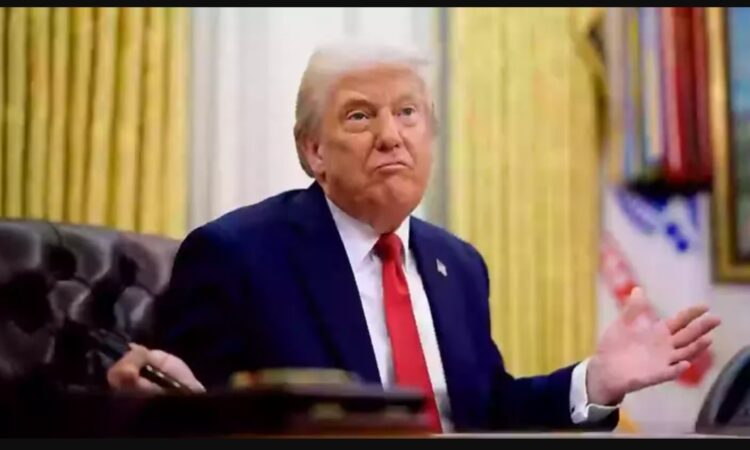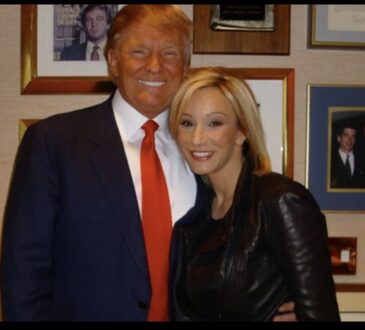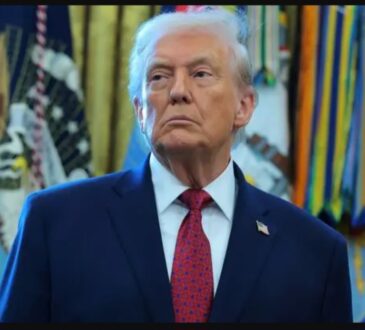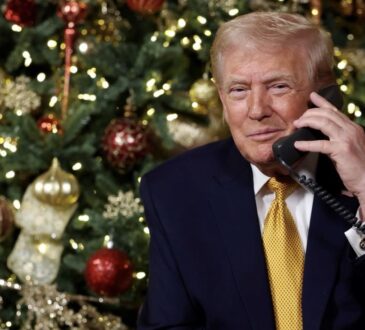
Donald Trump has been at the center of online debate after claiming that Europeans have given him a new nickname, something he proudly repeated to reporters.
According to him, leaders from across Europe are now calling him the “President of Europe,” and he described this as a great honor, saying he admires the continent and its leaders.
His comments came after a series of high-profile meetings aimed at finding a way to end the ongoing war between Russia and Ukraine, which has dragged on for years and continues to devastate the region.
Earlier this month, Trump traveled to Alaska to meet with Russian President Vladimir Putin on August 15, where they talked about a possible ceasefire.
Though no final deal was reached during that meeting, Trump remained optimistic and told the press that he believed there was still a good chance to achieve peace.
Just a few days later, on August 18, he hosted another meeting in Washington, this time at the White House, where leaders from multiple European countries as well as Ukrainian President Volodymyr Zelenskyy gathered to continue the conversation about stopping the conflict.
Among those in attendance were the leaders of Italy, Germany, the United Kingdom, Finland, and France, as well as NATO’s secretary general and the European Commission president.
They spent hours discussing how to move forward with a ceasefire and what steps could be taken to pressure Russia into more serious negotiations.
The German chancellor, along with others, stressed that without some form of truce, it would be hard to make real progress in peace talks.
He even suggested that a trilateral meeting between the involved nations should happen soon to take more concrete steps toward halting the war.
In the middle of all this serious diplomacy, Trump emerged with a surprising claim—that the European leaders he had just met with referred to him, even if jokingly, as the “President of Europe.
He framed this as a sign of respect and proof of his influence on the international stage, telling journalists that it was an unprecedented moment to have so many countries represented in a single meeting.
He said that in total, over thirty-five nations were involved in those discussions, something he believed had never been done before.
Despite his confident tone, the reaction online has been harsh and skeptical. Many Europeans have taken to social media to deny that such a nickname exists or that anyone in Europe would seriously call him that.
Several people posted messages mocking Trump, with one person saying, “We don’t call him that, not once, not ever,” while another wrote, “Europe here—HELL NO we don’t!” Others made jokes suggesting that if Europeans do call him names, they are far less flattering than “president.
One user teased, “Are ‘they’ in the room with us right now?” referring to the mysterious leaders Trump claimed gave him the title. Another wrote, “Nothing says ‘respect’ like a joke title from leaders who can’t stand you.”
Beyond the jokes, there is a deeper level of criticism. A recent poll conducted across the European Union’s eight largest countries and Denmark showed that more than half—51 percent—consider Trump to be an “enemy of Europe” rather than a friend or ally. This sharp contrast between Trump’s self-described honor and public opinion in Europe has fueled even more disbelief about his claim.
Some commentators argue that if the name was indeed used, it was likely sarcastic or said in jest during the tense discussions. Others believe Trump may have exaggerated a casual remark to paint himself in a more powerful light on the global stage.
Until European leaders themselves confirm or deny his story, the truth remains uncertain. What is clear, however, is that his statement has stirred strong reactions, reopened discussions about his approach to international diplomacy, and highlighted how divided opinions about him remain both in the United States and abroad.




